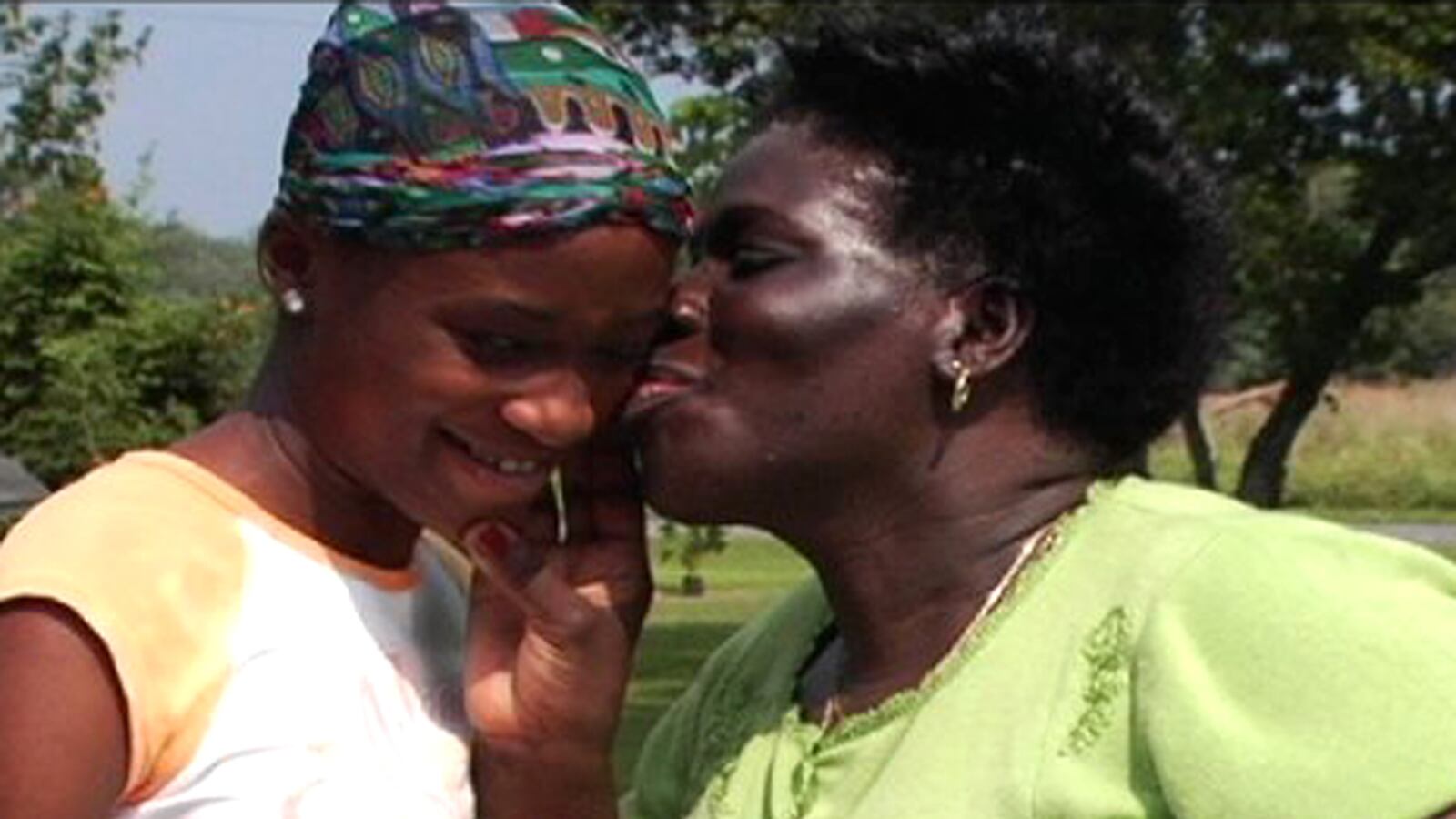Every Mother’s Day, Joey and Jacob, dressed in their nicest slacks and blazers, pile into a yellow school bus. They’re headed for the Bedford Hills Correctional Facility, New York State’s only maximum-security prison, to visit their mom, who’s behind bars on a nine-year manslaughter conviction. In a meeting room behind the prison gates, women wander impatiently amidst gauzy pink-clothed tables, waiting for their families to filter through the security checkpoints. It’s not a typical Mother’s Day celebration, but for these kids it’s routine. “I might be the only person who doesn’t have my mom with me at school, but even though she’s not with me she’s in my heart,” 11-year-old Joey tells the camera.
These are the children of Bedford, and the subject of the new documentary, Mothers of Bedford, which premiered at New York’s annual documentary film festival on Nov. 8. Directed by filmmaker Jenifer McShane, the film follows five women who, after bad luck or bad decisions, are adapting to raising their children through the kids' visits to “the inside.” Some mothers are in jail for murder; others for robberies. But all of them have one thing in common: prison, they say, has made them better mothers.The epicenter of the film is Bedford's Children’s Center, a program founded by Sister Elaine Roulet, a former principal who began loading kids into her old station wagon to visit their incarcerated mothers 40 years ago. She soon convinced the Department of Corrections to let her develop a program providing imprisoned moms with classes and activities—and the Children’s Center was born. While many prisons have occasional parenting classes, the extent of Bedford’s program is one of a kind. When the kids pour in for their monthly visits, they convene in the center’s brightly painted room that looks more like a day camp than a prison ward. “Women are in this role as inmates, but they come to this room and become mothers,” explains Bobby Blanchard, a lawyer who abandoned her practice to direct the prison’s program.McShane believes a strained mother-child relationship sets the groundwork for a future in crime. She wants to break down stereotypes painting jailed women as bad mothers. Over the course of the film, she introduces us to Melissa, who, after getting into hard drugs at age 12, says Bedford was a wake-up call. Melissa takes the film crew on a tour of her cell where she sleeps feet away from the baby she gave birth to soon after being incarcerated. “Prison saved my daughter's life,” Melissa's father says to McShane. Melissa agrees: it might have saved his granddaughter’s as well.

We also meet Rosa, whose youngest son, Jacob, says she was in the wrong place at the wrong time—the alleged victim of a framed shooting. In one scene, she plays Uno on the carpet of the Children’s Center with her eldest son, Joey, who tells the camera: “I don’t let my mom’s situation affect me because that’s going to pull me back.” His brother, Jacob, acknowledged the impact the prison’s program had on him growing up. “If I would never see my mother I wouldn’t be the person I am today,” he told the audience at the film’s screening.
What we learn throughout the course of the film is that being the child of a felon doesn't have to mean growing up motherless. The program’s planned activities, classes, and mentors strive to ensure a criminal history doesn’t continue down the family tree. “If they have a relationship with their mother instead of romanticizing their mothers, I really believe they’re less likely to get incarcerated and follow their moms into the prison,” Blanchard says. Keeping kids and their jailed mothers apart will only prompt the cycle to repeat, she believes.
The backdrop for these stories is a number of sobering statistics. Women are the fastest-growing population of prisoners in a country that incarcerates a larger percentage of its citizens than anywhere else on the globe. Today 80 percent of these jailed women have school-age kids, who bounce around between grandparents or aunts and uncles when their mothers are put behind bars. Blanchard attributes the incarceration rate to a law-and-order mentality that criminalizing something prevents it from happening. She hopes the documentary will bring a human side to these statistics, and show that educational programs are more important in stopping the cycle of crime.
McShane says she wants to bring awareness to the need for such programs—particularly since, as the economic situation has worsened, services keeping incarcerated mothers connected to their children are disappearing quickly. In New York, the Children’s Center budget has been slashed by 40 percent, forcing them to cancel the Mother’s Day event and reducing the yellow school bus that brings kids from the boroughs from monthly rides to just four times a year.
Program cuts haven’t dissuaded McShane from hoping the Children’s Center model will catch on across the country. She says she's already screened the film for several judges, as well as the New York state parole board. One judge told her that she’d been reluctant to grant visiting access for children, but the film had changed her mind. “The parenting programs at Bedford are the exception, not the norm,” she says. “I would love to see that trend reversed.”






